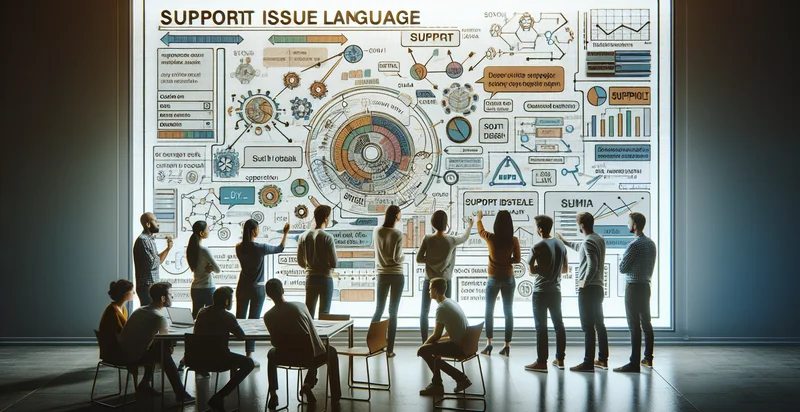Identify issue resolution success
using AI
Below is a free classifier to identify issue resolution success. Just input your text, and our AI will predict if the issue will be successfully resolved - in just seconds.

Contact us for API access
Or, use Nyckel to build highly-accurate custom classifiers in just minutes. No PhD required.
Get started
import nyckel
credentials = nyckel.Credentials("YOUR_CLIENT_ID", "YOUR_CLIENT_SECRET")
nyckel.invoke("issue-resolution-success", "your_text_here", credentials)
fetch('https://www.nyckel.com/v1/functions/issue-resolution-success/invoke', {
method: 'POST',
headers: {
'Authorization': 'Bearer ' + 'YOUR_BEARER_TOKEN',
'Content-Type': 'application/json',
},
body: JSON.stringify(
{"data": "your_text_here"}
)
})
.then(response => response.json())
.then(data => console.log(data));
curl -X POST \
-H "Content-Type: application/json" \
-H "Authorization: Bearer YOUR_BEARER_TOKEN" \
-d '{"data": "your_text_here"}' \
https://www.nyckel.com/v1/functions/issue-resolution-success/invoke
How this classifier works
To start, input the text that you'd like analyzed. Our AI tool will then predict if the issue will be successfully resolved.
This pretrained text model uses a Nyckel-created dataset and has 2 labels, including Successful Resolution and Unresolved Issue.
We'll also show a confidence score (the higher the number, the more confident the AI model is around if the issue will be successfully resolved).
Whether you're just curious or building issue resolution success detection into your application, we hope our classifier proves helpful.
Related Classifiers
Need to identify issue resolution success at scale?
Get API or Zapier access to this classifier for free. It's perfect for:
- Customer Support Ticket Analysis: Implement the text classification function to analyze incoming customer support tickets and identify those that are likely to result in successful resolution. This can help prioritize tickets and route them to the appropriate support agents for quicker handling, enhancing overall customer satisfaction.
- Warranty Claim Assessment: Utilize the identifier to assess warranty claims submitted via text. By categorizing the claims by their likelihood of approval based on prior resolution success, companies can streamline their claims processing, reducing turnaround times and improving customer trust.
- Feedback Loop Enhancement: Use the classification function to sift through customer feedback on products or services and identify comments that correlate with successful resolutions. This can guide product development and service improvements by highlighting what aspects lead to positive outcomes.
- Automated Response System: Integrate the text classification capability into an automated response system to identify which inquiries are likely to resolve effectively with predefined answers. This enhances self-service options for customers and frees up human agents for more complex issues.
- Performance Metrics for Agents: Employ the function to evaluate the success rate of customer support agents based on the text of their interactions. This analysis can provide valuable insights for performance reviews and training needs, fostering a culture of continuous improvement.
- Social Media Inquiry Monitoring: Leverage the text classification tool to monitor social media inquiries directed at the company. By identifying which comments or queries are likely to receive effective resolutions, businesses can engage proactively, protecting their brand reputation and improving customer relations.
- Knowledge Base Optimization: Analyze the text of resolved inquiries to identify common elements that contribute to successful outcomes. This information can be used to enhance the organization's knowledge base, ensuring that it contains relevant solutions that facilitate faster resolutions for future cases.


